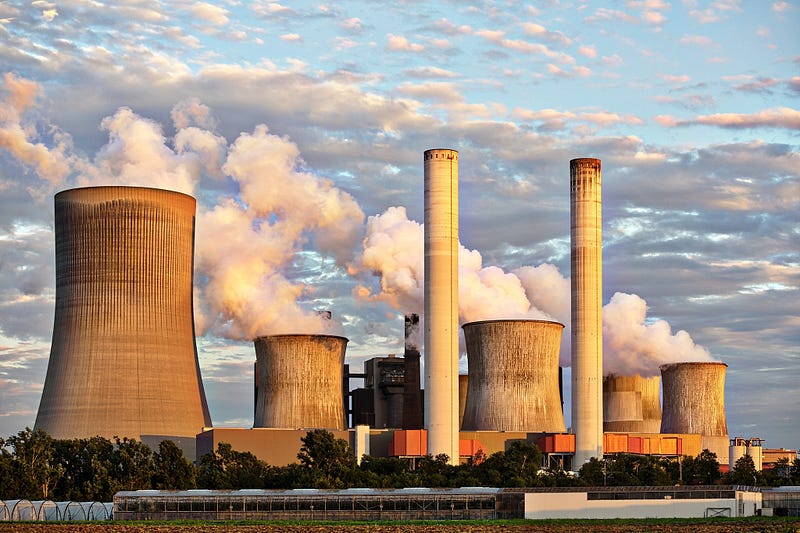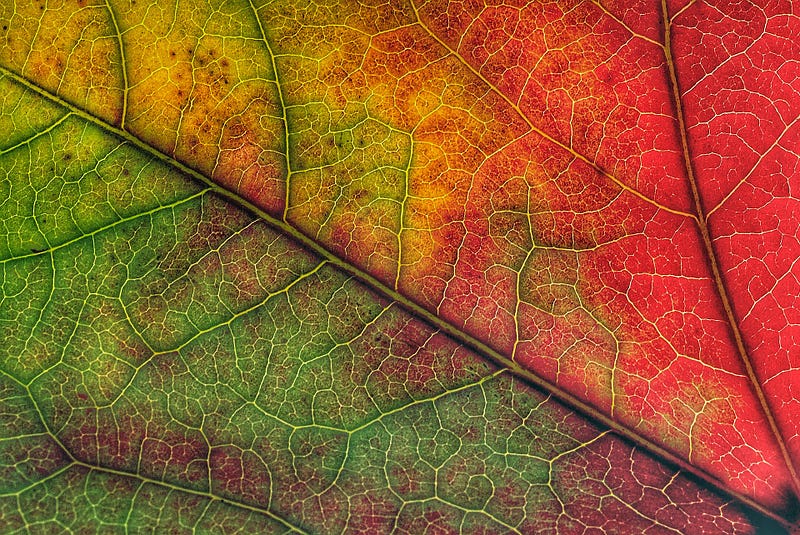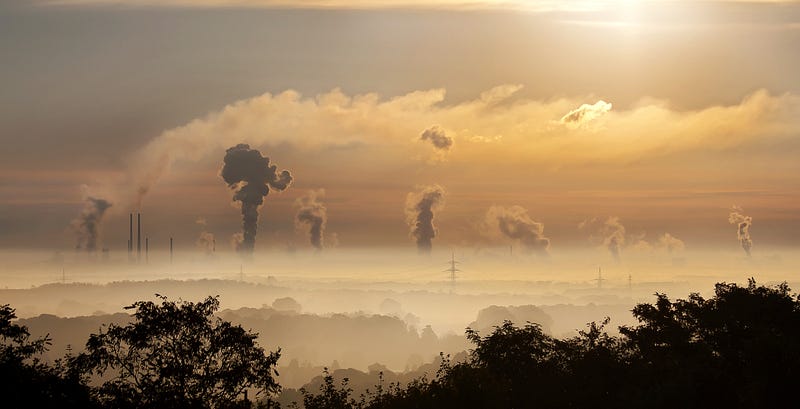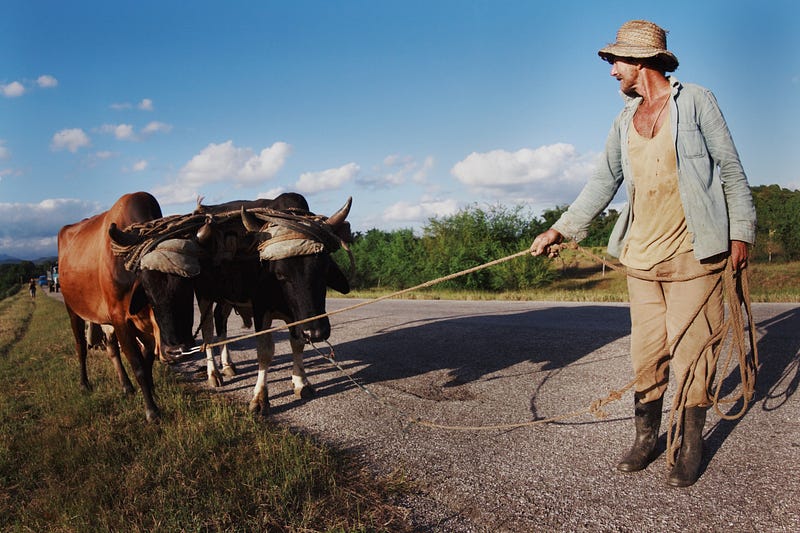Exploring Our Relationship with the Carbon Cycle
Written on

If, as many mystics suggest, all things are interconnected, how do we experience the illusion of diversity? If God is everywhere, as monotheists believe, how can evil exist? And if everything is natural, as scientists claim, how is it that our species poses a threat to Earth's ecosystems?
We have a tendency to seek patterns amid apparent differences, categorizing concepts like “substance,” “God,” “nature,” or “universe.” However, we also examine those differences closely, analyzing components individually to gain a piecemeal understanding of the world rather than simply glossing over them.
As Iain McGilchrist discusses in The Master and His Emissary, these dual modes of thought may stem from the distinct functions of our brain hemispheres. This conflict between holistic and analytical understanding is evident in the documentary “Carbon: The Unauthorized Biography,” part of David Suzuki’s series The Nature of Things.

The documentary features notable scientists like Neil deGrasse Tyson and is narrated by Sarah Snook, who voices a carbon atom. The central theme is our common misunderstanding of carbon. When we discuss harmful CO2 emissions, we often wrongfully attribute blame to carbon itself, treating it as inherently negative. Instead, we should recognize the marvels of the carbon cycle and understand that all life is fundamentally based on carbon. Rather than being a primary issue, carbon is depicted as a near miracle.
Tracing back to the Big Bang and the formation of stars, the documentary highlights that the carbon atoms created in stars and later dispersed through supernovae are unique due to their instability. These atoms, described as “the life of the party,” easily bond with other atoms, allowing life to emerge.
Photosynthesis exemplifies the carbon cycle on Earth, where plants capture sunlight, water, and CO2 to produce glucose, which sustains both themselves and the animals that consume them. Following the Great Oxygenation Event over 2 billion years ago, which enriched the atmosphere with oxygen for animal respiration, a harmonious balance between flora and fauna was established.
Animals exhale CO2, which plants utilize, while plants release oxygen as a byproduct of photosynthesis, essential for animal survival. Additionally, plants sequester carbon from the atmosphere through their roots, mitigating the risk of excessive atmospheric carbon buildup.
Thus, carbon is akin to any beneficial substance—essential within limits, yet toxic in excess. The carbon cycle represents a balance achieved over millions of years, sustaining both plants and animals, including humans.
One biologist in the documentary poetically states, “We are embodied sunlight,” as we derive sustenance from photosynthesis. More boldly, she asserts, “We don’t exist independently of nature. We are nature because we are made of carbon. So is everything else,” encompassing both our physical bodies and the plastics we produce.
However, this assertion raises an intriguing contradiction in the documentary's second, more environmentalist segment. This portion shifts focus from plants to human societies. Snook, portraying carbon, directly addresses us, stating, “Like magicians, you bend the world to your will in the blink of an evolutionary eye.”
A scientist emphasizes how peculiar and perilous our behaviors are:
> Humans use just immense amounts of carbon and other materials to make our products. The total mass of all materials manufactured by humans—plastics, steel, asphalt, and others—surpasses the combined mass of all living organisms, from trees and elephants to ants and coral reefs.
Carbon warns us, “You think you control me, but you forget that I have changed your world before. I will do it again.”
The environmental challenge arises from our naïve understanding of progress, which leads to a hazardous accumulation of carbon in the atmosphere, warming the planet and endangering the biosphere. We contribute to this imbalance by releasing carbon through industrial pollution and deforestation, disrupting a cycle that has persisted for eons.

This raises the question: How can this imbalance exist if, as the biologist states, “We don’t exist independently of nature”?
There seems to be a contradiction here. Physically, we are composed of carbon atoms, thus we are part of nature. Yet, in another sense, we are distinctly unnatural. No other species generates more than the total biomass of the world. When the documentary praises carbon for its electron configuration, it implies that carbon itself may not be entirely natural, as its existence has facilitated new complexities, including organic life.
Consider this: If a phenomenon is continually recreating itself, what is the purpose of generalizing its nature? While we can assert that nature is creative, this notion becomes trivial if it merely suggests that nature periodically evolves various forms of creativity. If all creativity is natural, then so too is humanity's, implying that if nature's use of carbon is acceptable, so too is our contribution to global warming, negating the basis for environmentalism.
Here, the holistic and analytical perspectives clash. Scientists advocate for the unity of natural processes to counteract nihilistic views stemming from modern knowledge. This holistic approach posits that all living entities are interconnected through their reliance on carbon.
Conversely, scientists also acknowledge the significant threat humanity poses to evolutionary balance. While we are interconnected with “nature,” we do not wish to jeopardize the survival of numerous species, including our own. Hence, we must learn to engage with carbon sustainably. This analytical perspective recognizes a distinction between nature and humanity, or more accurately, between wilderness and civilization.
The documentary struggles to clarify this distinction and thus appears incoherent by personifying carbon. The repeated characterization of carbon as the life of the party, alongside Snook's narration, invites viewers to relate to nature as if it were a benevolent maternal figure.
However, scientists would likely dismiss this personification as a tactic to appeal to a broader audience. When we acknowledge that the genuine use of carbon is mindless, amoral, and persistently devoid of any conscious direction, we confront an evident dualism. As reliant as we are on carbon, our challenge lies in our desire for independence, as human beings rather than mere elements of nature.
Nature inadvertently undermined itself by creating carbon, which sustains life’s evolution, ultimately leading to the development of personhood, culture, and the pursuit of progress. Human progress encompasses an unnatural form of creativity—intelligent design—aimed at enhancing nature. While nature remains wild, we prefer to construct artificial sanctuaries to escape nature's indifference. Those who exhibit wild behavior in society are often confined, reflecting our laws rather than nature's.
The scientist's cautions regarding the environmental damage caused by our progress are indeed prudent. If we wish to continue advancing, we must find ways to express our creativity without drastically altering the planet's equilibrium. However, acting prudently to develop technologies that might save us or scaling back economic excesses is a far cry from modifying our behavior based on a mystical connection to nature.
The rhetorical strategies employed by the documentary to promote environmentalism are ultimately unsustainable. The environmental dilemma cannot even be articulated without acknowledging our misguided desire for independence from nature, given that nature is inherently wild, and we suppress any trace of wildness within ourselves and society.

As I have discussed previously, the foundation of the environmental crisis lies in the rejection of wildness by modern, cultured individuals who aspire to be civilized and free. Despite their attempts to mask this with superficial personifications, scientists exacerbate our estrangement from nature by meticulously detailing its godlessness and inhumanity, highlighting the universe's physical nature.
In stark contrast to nature's mindless progression from cause to effect, or from one stage of complexity to another, we are social mammals capable of independent thought and the construction of artificial shelters from the wild aspects of our planet, from the uninhabitable realms governed only by nature's so-called "laws."
Why do we reject nature, even as our existence relies on it? Why are we not only alienated from the wilderness but also from our own essence? What drives our fear that forests are haunted, as reflected in our folklore? Why do we populate the cosmos with imagined deities or ancestral spirits? What compels us to favor fantasy worlds over the objective reality that scientists elucidate through their models?
Part of this stems from the cultural evolution we underwent during the late Stone Age, marked by trial and error. However, I believe the divide between humanity and nature is also existential. Unconsciously, in our quest to assert our status as unique, godlike beings, we often harshly judge nature for not mirroring us. How else could we feel pride in our self-awareness if not by contrasting our creations with those of nature?
Clearly, nature is a far more prolific creator than humanity. We cannot forge stars and planets, nor can we create a universe. Yet, we possess one significant advantage over nature: our creations are intentional, planned endeavors aimed at achieving specific goals and ideals. By envisioning these ideals and rationally strategizing to accomplish them within a cultural framework, we prioritize the successful realization of our intentions over any potential failures.
This capacity for conscious creation characterizes personhood, which is fundamentally at odds with the natural world and its potential for improvement. We distanced ourselves from the wild by adopting animistic cultures, preferring to view nature as inhabited by spirits akin to our own. Settling into larger societies led us to concentrate our mental faculties, producing increasingly ambitious—or reckless—progressive cultures that ultimately dominated the Earth during the Anthropocene.
In doing so, we implicitly recognized nature's essence and chose a different path. We envisioned a humanized alternative to the wilderness, deeming this civilized approach superior to the universe's indifferent, impersonal nature. We championed personhood and governed ourselves according to our concepts, languages, and cultures, considering them preferable to the raw existence of life in the wild. Pride in human achievements equates to a disdain for nature's brutality. This existential response to nature transcends mere practical considerations.
By exercising our personhood, we find ourselves fundamentally opposed to nature. The paradox lies in whether we can maintain our identity as cultural, symbol-using beings without embarking on a progressive trajectory that endangers nature's indifferent equilibrium, the very force that defines animals and distinguishes them from people.
What might it mean to be a person who yields to nature, relinquishing the capacity to imagine potential innovations along with the ambition and creativity to bring them to fruition? Would this not signify a regression to animalistic existence, possibly leading to our extinction?
I compile my writings on Medium into both paperback and eBook formats, available on Amazon. Feel free to explore them to support my work. The latest addition is *Questing for Epiphanies in a Haunted House, featuring 99 diverse articles spanning 600 pages.*